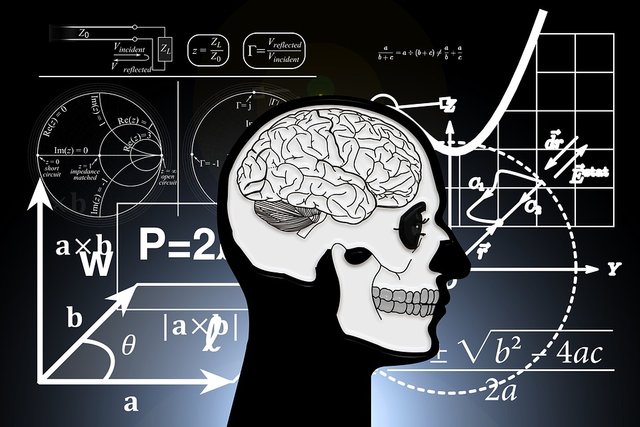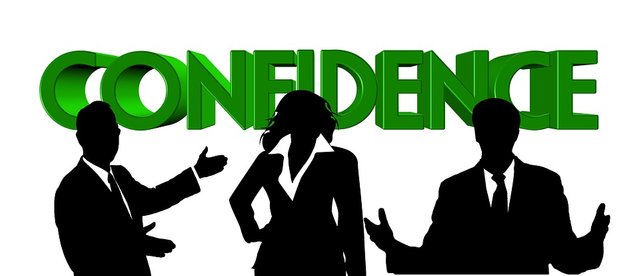What You Need to Know Before Polygraph Examination

Introduction
Okay guys I’ve done a few posts about What Doеs Thе Polygraph Mеasurе and The Polygraph Test As a Scientific Method. If you have missed them, please read them before proceeding with this one.
In one of my last posts about Introduction to Psychology in The Corporate And Cyber Security I have discussed the topic about the usage of the polygraph method in the private sector as a pre-employment tool as well as its application in corporate security.
Some of you criticized the application of the polygraph as a pre-employment method and argued that it is a disrespectful procedure which harms the individual’s rights. Others said that it is a ‘mumbo-jumbo’ technique which has no value and should not be taken seriously. I could easily fall into meaningless arguments with anyone of you but instead I would prefer to write this article in attempt to educate and spark curiosity within the skeptics amongst you.
Today I would like to talk about some fundamental (at least for me) knowledge about the polygraph and it’s application (mostly) in the private sector. I will see what outcomes this article would provoke and think about whether to write further about this topic, including more details about it.
If by any chance you or someone you know happen to undergo a polygraph test, these are the most important things you should know and be careful about.
So first thing’s first. When we talk about the polygraph, most people imagine a device which is attached somehow to the human body and can tell in real time if you tell a lie or not. While this is the basic idea of the ‘lie detector’ (I really hate this term tbh), there is a lot more behind it.

The polygraph method is a hundred percent based on various scientific studies.
Please understand that the polygraph method is based on a lot of scientific research in the past hundred years. If you would like to read more about all the science and statistics behind it I suggest you read my articles I mentioned in the beginning of this post and also check these links out:
While the polygraph method is a hundred percent based on science, it is not a hundred percent accurate. Scientists amongst you would agree that there is no 100 % accurate scientific test.
The polygraph device and polygraph method are two completely different things.
The polygraph itself is a hardware device which consists by the polygraph machine itself and special sensors, which are attached in a specific way to the examinee. The sensors are specifically manufactured to detect certain physiological reactions. While in the past the polygraph device was limited to analog polygraph machines, today we use modern devices connected to laptops on which specific software displays and records the examinee’s physiological reactions. Usually you would see two breathing sensors, two EDA (electrodermal activity sensors), one cuff for cardiovascular activity and special chair which has movement sensors for the arms and the lower part of the body (feet included).

The polygraph method or polygraph technique includes all the scientific basis of how the examination is conducted including the correct application of the theory, the specific test format, question formulating, ethics, following strictly all established standarts, properly scoring the results, decision making and formulating conclusions.
Nobody can force you to undergo a polygraph examination against your will.
When conducted by certified professional you will never be forced to undergo polygraph procedure. You will be explained everything in details in advance and will be asked to sign a declaration of consent if you agree. Even after signing this declaration, you are free to interrupt the examination and leave at any point.
The polygraph examination should only be conducted by certified expert.
Whenever you go to a polygraph examination, or you want to hire someone to conduct one for you, ‘do your homework’ and make sure that the expert is truly a certified professional. You can do that by going to the American Polygraph Association website and check the person. I strongly advice against trusting anyone who claims he or she is a polygraph examiner and is not a member of the association or another legit polygraph school.
The polygraph does not measure tension, fear, love or any other emotion.
There is no person who is not nervous during a polygraph examination. Even when a people have been through several examinations, they still claim and actually seem to be nervous or anxious. Guilty or not, it is normal to feel nervous or excited about the examination, yet the method successfully distinguishes liars from honest people, despite their level of nervousness.
The polygraph method is not a panacea.
The polygraph is not a magic wand which will solve all of your problems. Not all topics could be examined by the polygraph technique. Subjective ideas or topics like love, intentions, beliefs, moral views etc. cannot be examined. When conducted properly, the examination should be in agreement with certain rules about question formulating and topics which can or cannot be examined.
The polygraph examination is never ever conducted in an offensive or insulting manner.
All certified professionals must follow an established code of ethics, which you could find here. Nobody who considers themselves to be a professional would never break the code of ethics even if you try to provoke him to or try to sabotage your examination. There are plenty of other ways to deal with such cases and none of them include offending the examinee.

There are no secret, surprise or private questions in the test.
In the very core of the polygraph procedure is explaining everything in details to the examinee step by step in advance. This includes the topic of the examination, all the questions and their context. Remember that the purpose of the polygraph method is to establish whether a person is telling the truth or not. This is impossible if the person does not understand or expect certain question. Only after you are introduced to the procedure and the questions included, you will be asked to read and sign a declaration of consent.
The whole procedure most likely will be audio and video recorded.
In the declaration of consent should be stated that your examination will be audio and video recorded. Here is why that’s a smart idea and you should even demand it, if they try to skip this detail.
The audio and video recording is the best way for yourself to be guaranteed protection. When you have the recording of your examination, you will be a hundred percent sure that the examiner would not corrupt your recording, question list or anything else.
The polygraph test itself is only a small part of the examination.
The whole procedure called a polygraph examination includes four parts:
Pre-test interview
Polygraph test
Scoring results
Post-test ( this is the part where the company provides the results to you)
Usually the actual polygraph test is the shortest part of the examination.
On a very rare occasion you will be notified about your result.
Depending on the case and conditions your examination is conducted, there is a high chance that you will not be notified about the results of your examination. Of course, this practice is strictly related to the company’s politics. For example, if you are a job candidate, the company which pays for the examination receives the result. You will not receive it from the examiner, but you have every right to require it from the company and even have them delete your recordings if you like.

Why you should not worry if your future or current employer requires from you to undergo a polygraph examination.
Okay, first of all, polygraph testing in the private sector is not legally allowed in some countries like the USA, Germany or UK. If it is prohibited by law, there is no chance for you to be examined even if you want to.
But in case if in your country, like in mine, there are no legal restrictions against such practice, here is what you need to know. If you read and understood everything discussed so far, you know that nobody could actually force you to take the test, if you don't want to and sign the declaration of consent. Anyway, even at this point people still ask themselves, why such procedure is required? How would you convince me to take this test?
On daily basis me and my colleagues work with job candidates for various companies, which are okay with the idea to be examined by the polygraph, but still have hesitations and uncertainty about the reason of conducting such kind of test. My job is not actually to convince the person to take the polygraph test. But when I actually explain the potential benefits for the employee and the company, people usually begin to understand and change their mind.
Security
The polygraph method could be successfully applied as a preventive tool. For example if you want to eliminate the risk of hiring drug addicts or criminals, the polygraph is your quickest and most accurate scientific tool. Of course drugs and previous criminal activity are only brief examples of potential topics you could ask to be examined.
How is this beneficial to the examined person?
If we continue with the example for drugs and criminal activity, unless the candidate feels comfortable working with such people - there is no problem.
Of course I am saying this ironically, because I cannot imagine anyone who wants serious and well-paid job to expect to function successfully around criminals and drug addicts. I agree that undergoing a polygraph test might not be the most comfortable and pleasant experience of your life, but when you think about it on a larger scale, it offers a lot of benefits in terms of security.
Resolving issuses
As I said already, the polygraph is the quickest scientific method you could rely on if you or your company is a victim of a crime. Usually when a crime is committed, honest people would like to resolve it as quickly as possible. That includes being cooperative to the investigation, even if that requires taking a polygraph test. On contrary, guilty people would like to slow down the investigation, sabotage their examination and authority of the experts. I will leave the conclusions to yourself.

Final Comment and Discussion
Hopefully this short article was somehow beneficial and insightful to you. If it was, please share your thoughts with me. Especially if you are sceptical about this topic. I would like to see some thought provoking comments.
I have the following questions to you:
If you say that the polygraph does not work, could you be more specific? What actually do you mean by not working? The device itself? The method behind it? The expert?
Based on the discussion, if such happens I would continue with more articles about this topic.

I think polygraph does work, I mean, the method. When a person lies, or when someone is sensitive about any topic, for example, talking about his love in front of several people, their physiological indices such as respiration or heart beat or pulse etc shows activity. There is also scientific evidence about activity in the brain when a ‘sensitive’ topic is discussed about the person in question. Therefore, I think that during polygraph, a person’s physiological indices can definitely be measured and recorded.
I went through all previous posts regarding this topic, and all I can say is - well done! :)
I tend to disagree. If applying for well paid position in a serious company, you absolutely have no rights to have drug addiction/alcoholism history behind you.
Exactly. But there are different people with different views.
Thanks for reading!
I loved your article, congratulations for your great contribution. I wish you continue to be successful and may God bless you. Greetings. @dysfunctional great method
Thanks! You are always welcome :)
Hey @dysfunctional, another wonderful, well written blog.
I've always wondered about this. I mean, as you rightly pointed out, even if I'm not guilty I would still be nervous and scared of being falsely perceived as a liar, and that in return would make me look suspicious.
Please keep up the great work!
True. And yet the polygraph works always. No matter how nervous the guilty or the innocent is.
Carl Gustav Jung was the first one to use it scientifically and also in discovering so called "thief complexes" ;)
EDIT: Oh I see you mentioned this in previous post!
Thank you for your contribution. And yes, I did :)
The closest experience I have had with the polygraph test is watching it in a movie. I got quite confused when you said it doesnt measure emotions, so what exactly does it measure? Has there ever been a situation in which an examinee beat the test? Like you said it yourself that no experiment can be 100% accurate, what happens to the exceptions? What if the machine picks me as a liar when indeed I am not?
Please read the articles which I have linked in the first paragraph :)
The accuracy of a polygraph got me thinking too just as @gentleshaid stated in his comment...if i may ask, could my emotions acted intentionally while communicating be predicted correctly by a polygraph if perhaps am an hyperactive or usually tensed type of a person?
The polygraph does not measure your emotions. It measures the physiological responses of your autonomous nervous system. Please read the two articles I linked in the first paragraph.
Alright...I will
I have always known that polograph measures how someone's nervous system respond to a question. Some people get afraid, or feel somehow when they lie, I thought maybe the system detects the lie by detecting fear. Am glad you cleared that up. This is quite informative @dysfunctional.
Thanks for reading and sharing your thoughts !